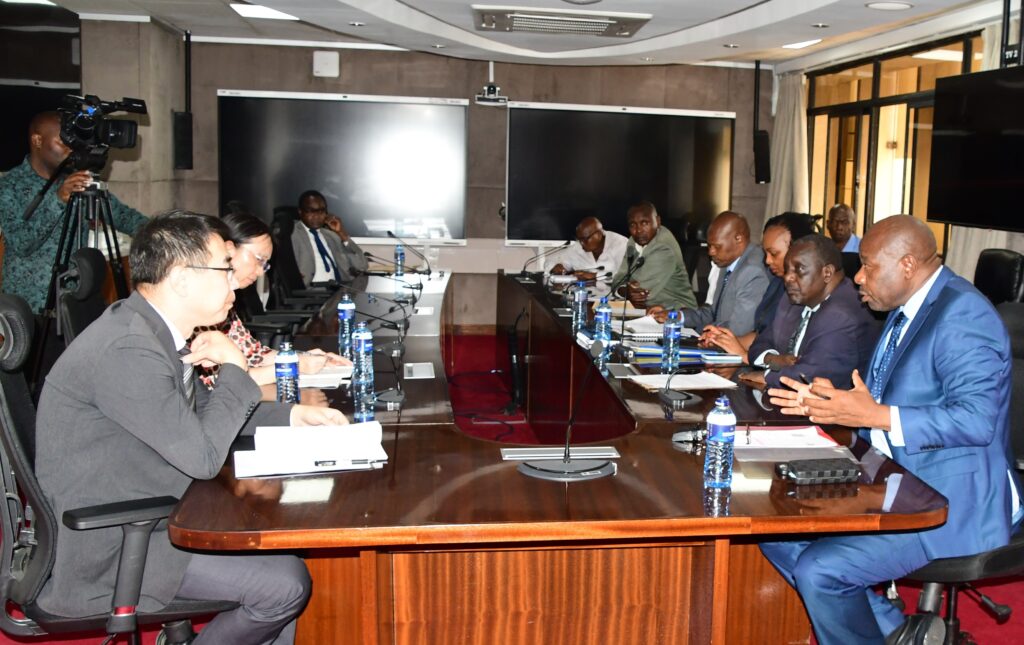In a move hailed by both sides as a step toward media modernization, the Kenyan and Chinese governments are deepening ties in the information and communication sectors. But beneath the glowing headlines of “cooperation” and “knowledge sharing,” critical questions remain: Who truly benefits from this partnership, and what does it mean for Africa’s media independence?

On Wednesday in Nairobi, Kenya’s Principal Secretary for Broadcasting and Telecommunications, Prof. Edward Kisiang’ani, announced a new wave of collaboration with China aimed at revamping Kenya’s media infrastructure. At face value, the partnership promises economic empowerment and technological upgrades. But as history has shown, foreign investment in Africa’s information space has rarely come without strings attached.
Prof. Kisiang’ani emphasized that the media must shift from simply reporting events to becoming engines of social and economic transformation. According to him, China and Kenya share more than cultural diversity—they both stand to gain from advancements in digital tools like Artificial Intelligence. He argued that an upgraded media environment could support Kenya’s Bottom-Up Economic Transformation Agenda (BETA), whose five pillars include agriculture, MSMEs, housing, healthcare, and the digital economy.
While this may sound progressive, it raises an uncomfortable truth: Kenya’s public broadcaster, the Kenya Broadcasting Corporation (KBC), is heavily dependent on foreign states—first the West, and now China—for its survival. With discussions now focused on training, capacity-building, and equipment provision from China, one wonders: is Kenya building media resilience or outsourcing its narrative?
At the meeting with Chinese Deputy Chief of Mission Zhang Zhizhong, Prof. Kisiang’ani noted that KBC needs a complete technological overhaul—from outdated cameras to obsolete processing systems. He stressed the need for tools to verify information quickly and accurately in an era dominated by AI-generated content and disinformation.
What remains unsaid, however, is whether such dependence on foreign powers for AI tools and digital infrastructure could open doors to soft-power manipulation. If Kenya relies on Chinese-funded training, Chinese-built infrastructure, and Chinese AI models, can it still claim editorial independence?
Minister Counselor Zhang, unsurprisingly, praised the partnership, describing Kenya as “one of the emerging economic powers in Africa” and noting the importance of direct media ties to foster mutual understanding. He spoke of plans for co-produced news reports between KBC and Chinese state-run outlet Xinhua, particularly in areas like climate change and cultural diplomacy.
But let’s pause. China’s global media strategy is not about mutual understanding. It’s about narrative control—building influence through media content, language training, and infrastructure deals. From Zambia to Ethiopia, Chinese media engagement has sparked debates over censorship, biased reporting, and content control masked as “cooperation.”
KBC CEO Agnes Kalekye acknowledged that Kenya’s state broadcaster is in dire need of modernization. She confirmed that Xinhua is already training KBC teams in AI and hinted at upcoming 5G broadcasting partnerships. Her tone was hopeful. Yet one could argue this highlights the very failure of Kenya’s own leadership to invest meaningfully in independent, homegrown media technologies.
It’s easy to romanticize this as a leap into the digital age. But what does it cost to leap using another country’s legs? Are we setting up Kenya to become a digital vassal of a foreign state, swapping Western dependency for an Eastern one?
The truth is, Africa doesn’t just need partnerships—it needs equitable partnerships. Collaborations must be driven by African priorities, governed by African data policies, and rooted in long-term sovereignty, not short-term fixes.
China-Kenya diplomatic relations, established in 1963 and reinstated in 1978, have seen highs and lows. This latest media engagement could redefine the narrative—or entrench a new form of digital colonialism.
The real story isn’t about AI tools or training workshops. It’s about narrative power. Who gets to tell Kenya’s story, and who controls the tools we use to tell it?
This is not just a media story. It’s a sovereignty story.







